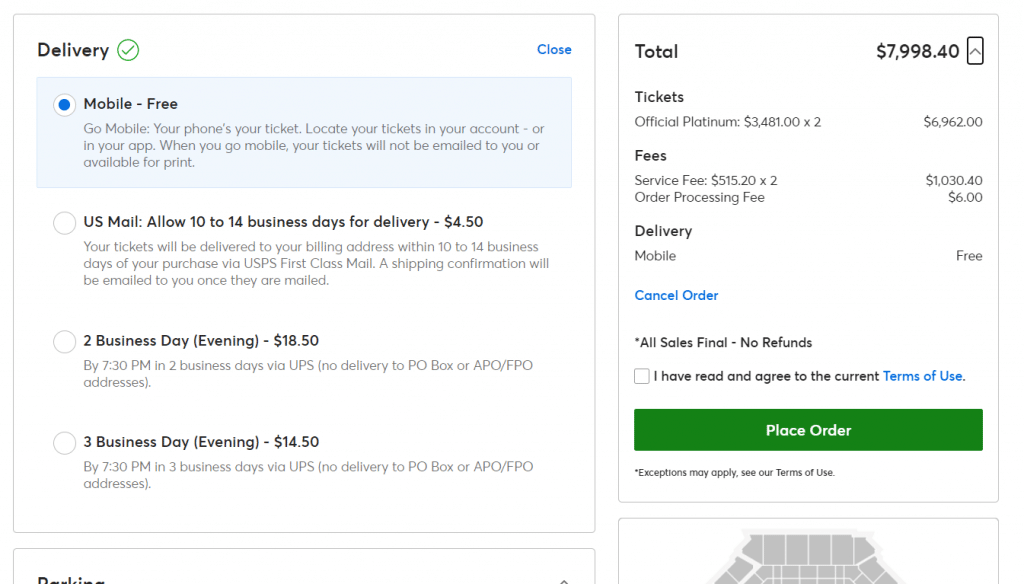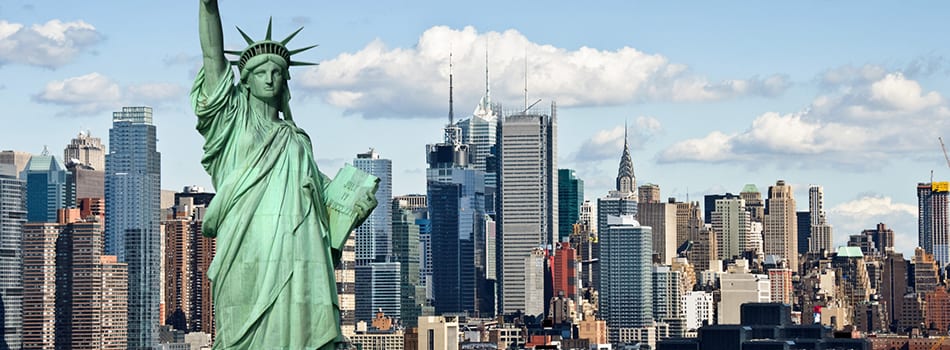Ticketing rebates passed back to venues and promoters are expected to be a central focus at upcoming hearings regarding the ticketing business held in New York. Such rebates, which are funded through “service fees” charged to consumers at the point of sale by vendors like Ticketmaster and AXS, are a violation of New York law according to legal analysts, and could pave the way to significant legal exposure for teams and venues that continue to accept them.
One of the central complaints by consumers purchasing tickets is the lack of transparency regarding the high fees that they are charged in excess of the “face value” of a ticket. Such fees charged by primary marketplaces bear vague titles like “service fees” or “processing fees” or even a “convenience charge” and can run to “outlandish” levels, according to analysis by the office of then-Attorney General Eric Schneiderman in its Obstructed View report on the ticketing business, issued in 2016.
Such fees are generally blamed by consumers on companies like Ticketmaster, but are actually usually passed right back to their client – E.G. the venue or promoter of the event being sold. Ticketmaster says so right on its FAQ:
“In almost all cases, Ticketmaster adds a service fee (also known as a convenience charge) to the face value price, or in the case of a resale ticket to the listing price, of each ticket. The service fee varies by event based on our agreement with each individual client…
“In both cases, these fees are collected by Ticketmaster and typically shared with our clients.”
For most legal jurisdictions, there isn’t really anything wrong with this, aside from the fact that consumers are being charged an extra fee that often isn’t disclosed until the very end of a purchase transaction, a “drip pricing” tactic that has drawn legal scrutiny in some instances and is generally believed to be anti-consumer vs. an all-in pricing model that shows the actual price paid by consumers up front, such as on resale platforms like Megaseats.com.
In New York, however, this is arguably against the law.
“In 2010, the New York legislature amended the State’s law governing ticket fees,” Schneiderman’s report reads. “The statute, as it stands, bans the addition of any fee to a ticket by a venue operator or its ticket vendor except fees that are associated with “special services” for which a “reasonable service charge” may be levied. The statute states that special services include but are not limited to such services as “sales away from the box office, credit card sales[37] or delivery.” Thus, charges added to a ticket’s face value violate State law if they are either (1) mandatory, general fees, unconnected to the provision of “special services,” or alternatively, when (2) such fees reach levels that are no longer “reasonable.”
Yet these fees have continued to this day.
A look at tickets for the Bad Bunny tour recently on sale shows high fees with limited understanding of what they are actually for across the board, including for events at Brooklyn’s Barclays Center.

“Official Platinum” tickets – which are really just tickets priced as high as the market will bear by event operators, are all that remains for the event on the Ticketmaster website, besides resale tickets. A pair of tickets that organizers are charging $3,481 each for bear a “service fee” of $515.20 per ticket. This is just shy of 15 percent of the price charged to the consumer, and will be “shared” with the venue as a rebate, beyond whatever their share of the egregious $3,481 price already being charged per seat.
Analysis by Anthony Dreyer and Karen Lent of Skadden, Arps, Slate, Meagher & Flop LLP indicates that these issues constitute significant potential legal exposure for these New York organizations.
Of all the issues addressed by the NYAG, high service fees seemingly have the greatest potential impact on venue operators. In the NYAG’s view, many of the service charges imposed within the state do not comply with New York law, which requires that service fees be reasonable and related to the provision of special services, such as sales away from the box office or delivery fees. In support of his belief that service charges within New York are excessive and unreasonable, the NYAG compared service fees associated with tickets to service fees charged for other goods and services on the Internet. Notably, most online retailers, including Amazon and Etsy, charge no “general” fees, so it is unclear what services are covered by fees collected by online ticket vendors that similarly don’t have the expenses associated with brick-and-mortar operations.
Mr. Dreyer advised that the risk to event and venue operators is not just an NYAG inquiry or proceeding but a potential class action claim under New York General Business Law § 349. Further, he stated that in order to withstand scrutiny, operators should be sure they can justify the service fees they are charging, and that those fees are for “special services” in accordance with New York law.
With high scrutiny on all aspects of the ticketing ecosystem expected at the New York hearings, it is possible that venue operators will attempt to dodge the thorny legal issues inherent to their acceptance of payments from vendors that may be in violation of state law and bring with it the threat of consumer legal action and potential jail time, but they are unlikely to be so lucky, particularly in the wake of Department of Justice action against their primary vendor, Ticketmaster, at the tail end of 2019.
We’ll be providing additional coverage of this and other issues out of New York as the inquiry gets underway.



